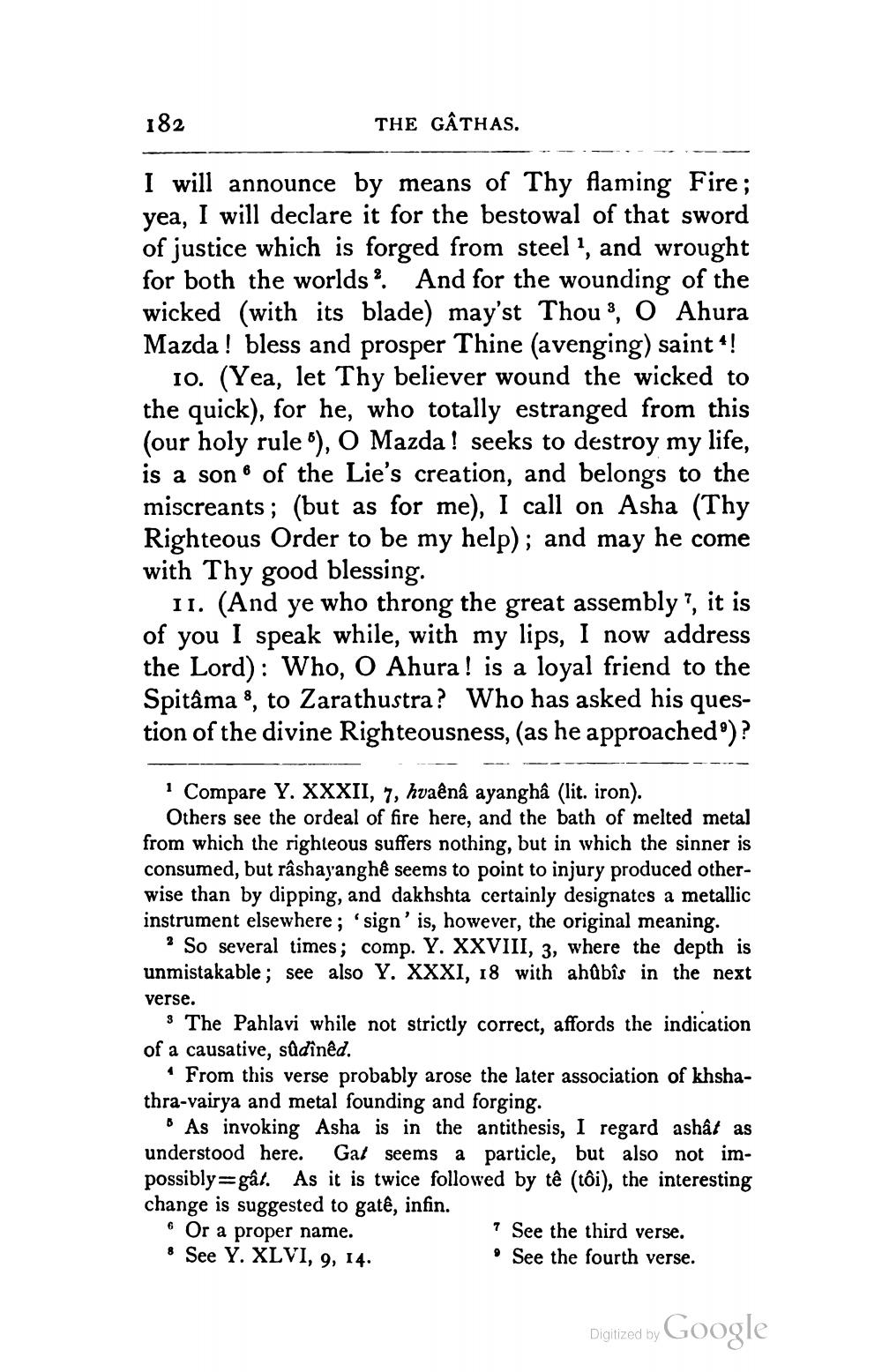________________
182
THE GÂTHAS.
I will announce by means of Thy flaming Fire; yea, I will declare it for the bestowal of that sword of justice which is forged from steel 1, and wrought for both the worlds ? And for the wounding of the wicked (with its blade) may'st Thou?, O Ahura Mazda! bless and prosper Thine (avenging) saint'!
10. (Yea, let Thy believer wound the wicked to the quick), for he, who totally estranged from this (our holy rule), O Mazda ! seeks to destroy my life, is a son of the Lie's creation, and belongs to the miscreants; (but as for me), I call on Asha (Thy Righteous Order to be my help); and may he come with Thy good blessing.
11. (And ye who throng the great assembly?, it is of you I speak while, with my lips, I now address the Lord) : Who, O Ahura! is a loyal friend to the Spitama , to Zarathustra? Who has asked his question of the divine Righteousness, (as he approachedo)?
Compare Y. XXXII, 7, hvaênâ ayanghâ (lit. iron). Others see the ordeal of fire here, and the bath of melted metal from which the righteous suffers nothing, but in which the sinner is consumed, but râshayanghê seems to point to injury produced otherwise than by dipping, and dakhshta certainly designates a metallic instrument elsewhere ; 'sign' is, however, the original meaning.
? So several times; comp. Y. XXVIII, 3, where the depth is unmistakable; see also Y. XXXI, 18 with ahâbîs in the next verse.
3 The Pahlavi while not strictly correct, affords the indication of a causative, sûdîned.
* From this verse probably arose the later association of khshathra-vairya and metal founding and forging.
• As invoking Asha is in the antithesis, I regard ashât as understood here. Gat seems a particle, but also not impossibly=gât. As it is twice followed by tê (tôi), the interesting change is suggested to gatê, infin. 6 Or a proper name.
? See the third verse. 8 See Y. XLVI, 9, 14.
• See the fourth verse.
Digitized by
Digitized by Google




